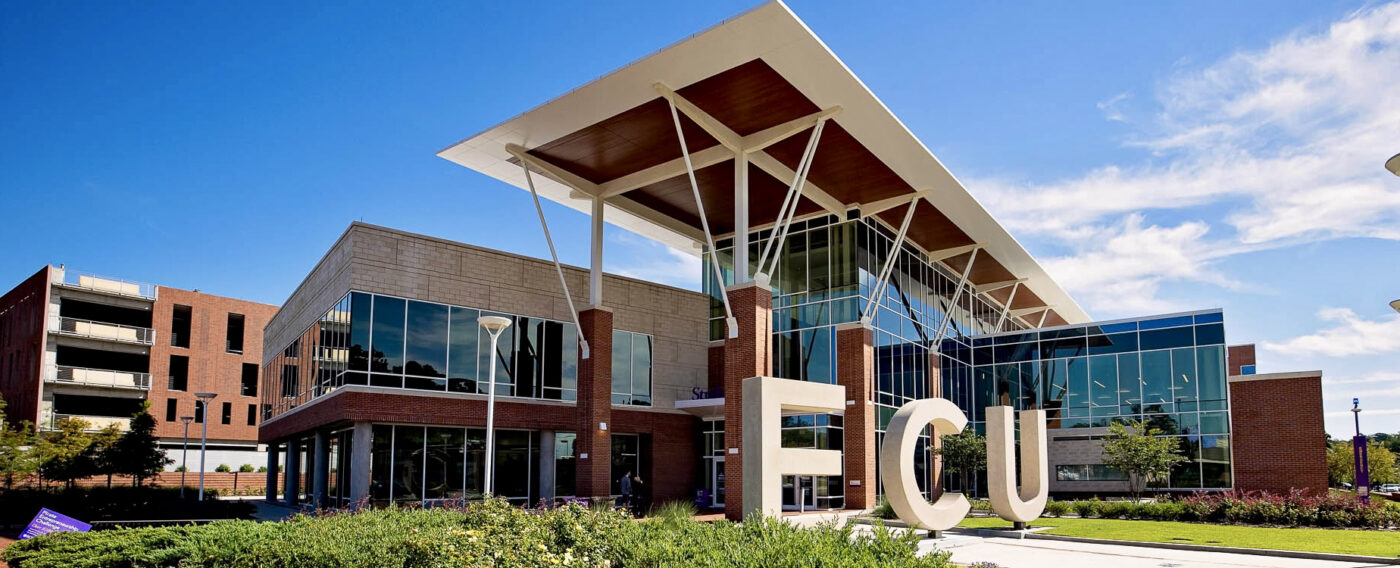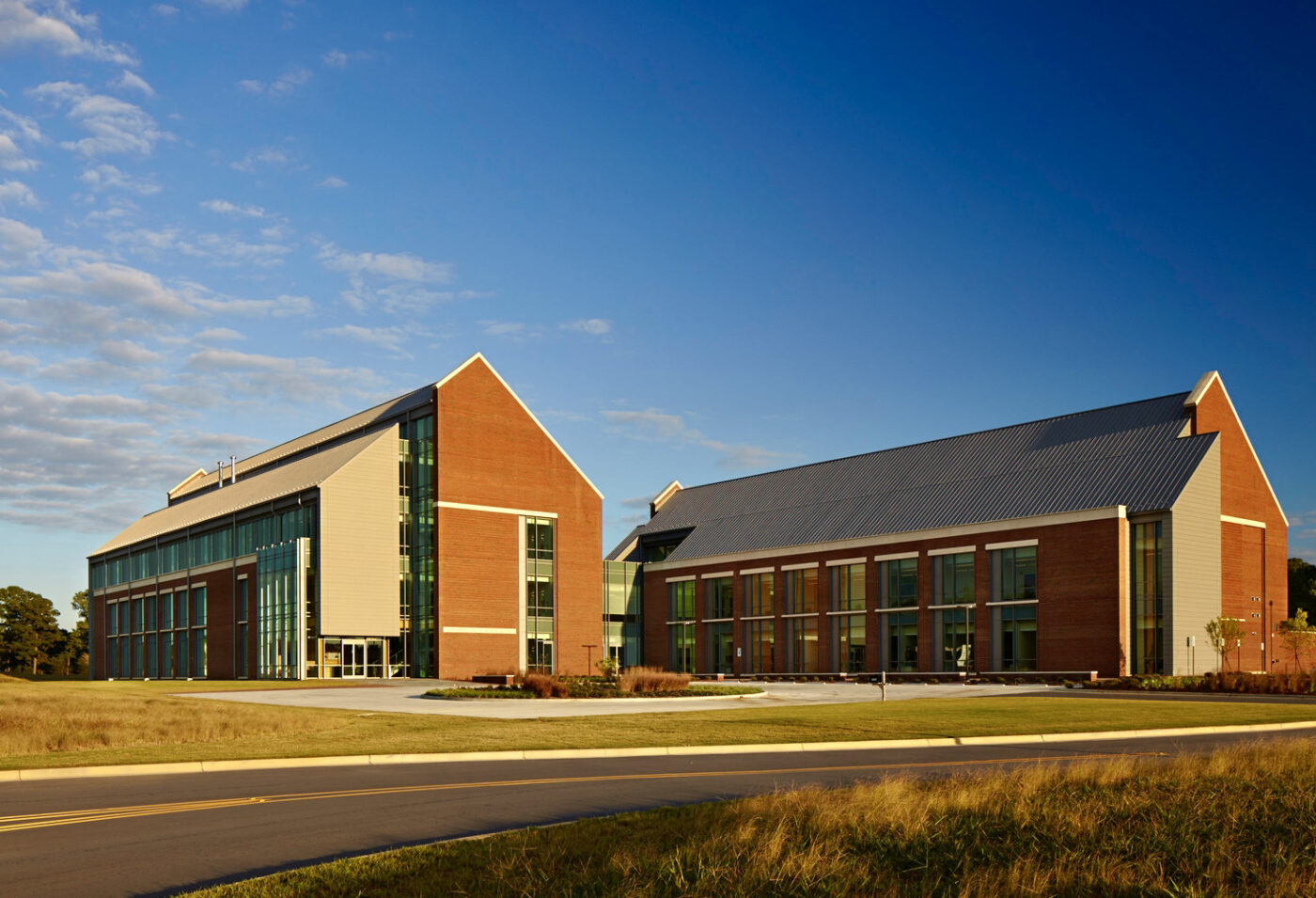Application Strategies for North Carolina Medical Schools
Our primary mission at the International Medical Aid (IMA) has been to help aspiring physicians research, apply to, and earn acceptance to the medical school of their choice. This was our motivation for developing this guide, which reviews each of the four medical schools in North Carolina. Perhaps you came across our guide by searching online for “medical schools near me,” and you were likely flooded with a great deal of information. Sometimes, this can be quite overwhelming. One of the benefits of this guide is that we’ve been able to take the information and summarize it into an accessible review of the best medical colleges in North Carolina. Our hope is that this guide helps you make the right choice for you.
No two medical schools or admissions committees are the same. They each have their own unique set of standards, testing requirements, and medical program options. They are each looking for specific qualities in an applicant. It will be important to thoroughly research each school you are interested in, and we have detailed medical school guides to help with that process.
There will be some aspects of your application that each school’s admissions committee will be looking for, including good grades on required coursework, a decent MCAT score, United States residency, and more. Each school has the basic requirements needed to have any chance of making it to the secondary application or the interview stage of the process. You will have had to take their prerequisite science courses from an accredited college or university. You will also be asked about any previous clinical experience or volunteer work you’ve done in the medical field.
Med schools in NC can be challenging to matriculate into, and you’ll want to make sure to be as prepared as possible. These schools are accustomed to highly qualified applicants, so give your 100% best effort every step of the way if you want to earn one of those coveted spots in the program.
When you do your “medical schools near me” search and select a few schools to apply to, you should spend some time getting to know the overall atmosphere of the school. What are the focus, mission, and goals of the medical program, and does it align with your own? Will you be able to make a valuable contribution of yourself to the student body, or do you feel like you’d be unseen? These are good questions to ponder as you research.
Selecting the right medical school to apply to is absolutely vital. Aspiring medical students will come across as enthusiastic, confident, and dedicated if they are passionate about the school itself and what it stands for. Buy-in is very important for the level of access.
Make Your Application Count: Medical School Admissions Consulting
When it comes to applying to that medical school you’ve got your sights set on, you want to make that application count by being as prepared and thorough as possible. There is a plethora of information on the internet about how to submit a good college application, but there is absolutely no comparison to the kind of preparation that comes with working with a professional medical school admissions consulting expert one-on-one.
At IMA, we have learned that every application to medical school needs to be as unique as the applicants who are applying. This is why it’s important to receive some personalized guidance as you walk through the process step by step. Your application needs to stand out from the hundreds and thousands of other applications on the desks of the individuals on the admissions committee. IMA’s medical school admissions consulting is a service that meets each applicant in the middle of their own unique story and guides them through the application process to give them the best chance of being accepted.
Our consulting services include strategy planning, essay editing and guidance, interview preparation, and mock interviews when needed. Our medical school experts will help you put yourself forward as a candidate who is prepared, memorable, and committed, so that you stand out to the admissions committee.
To learn more, visit IMA’s Medical School Admissions Consulting page and schedule your own initial consultation.
North Carolina Medical Schools: Pre-Med Considerations
Planning early for medical school admissions is a wonderful idea, and there are things you can do now in your planning stages that will really add to the quality and shine of your medical school application. If you’re reading this guide early in the planning process, the following advice will help you get ready ahead of time:
- Make sure to take quality, high-level science classes that are likely to be prerequisites for medical schools whenever possible, such as Organic and Inorganic Biology, Biochemistry, Chemistry, and other similar classes. Make sure to keep your GPA as high as possible, as the admissions committee will definitely look at this. Check out IMA’s Medical School GPA Calculator for more assistance in this area.
- Your score on the MCAT exam is extremely important, so be as prepared as possible, study hard, and leave yourself plenty of time to take the test. Also be aware that most schools require the MCAT to be taken within the past three years prior to your application, and some schools are even stricter and require it within a year leading up to applying.
- Participating in school clubs and extracurricular activities can look fantastic on your medical school application. Admissions committees love to see students who are engaging with their peers and getting involved in the student body. Student government is a wonderful option, as is sports activities. If you can join clubs and organizations that are related to the sciences, particularly medical science, that is ideal.
- It is imperative that you volunteer for or sign up for clinical experiences as often as possible. There are many ways to accomplish this. You can work in a doctor’s office doing just about anything, get involved with a medical research opportunity, or spend some time volunteering at a community clinic in an underserved region of the state. The more clinical and medical experience you can get under your belt, the better!
IMA offers an incredible opportunity that looks great on your medical school application. Our pre-med shadowing study abroad programs have become one of the most popular of their kind, immersing students into new cultures where the medical necessities of the people vary greatly. There is nothing else that compares to an experience like this. It tends to inspire medical students to serve in areas where medical professionals are sorely needed. Whether you’re interested in pre-medical internships in Peru, Uganda, Kenya, or more, you’ll find that this is the opportunity of a lifetime, and does wonders for your medical school application. If you’re interested in learning more, visit our site.
Most medical school admissions committees look at a lot more than test scores when determining if an applicant is a good fit for their school. They look at each candidate as an individual, not solely defined by numbers alone. However, all committees will consider GPA and MCAT scores when they analyze applications, so it’s important you keep your grades up and prepare as much as possible for the MCAT. When it comes to average GPA scores, applicants for medical schools in North Carolina tend to have an average GPA of between 3.5 and 4.0. You’re going to want to calculate your GPA and check our medical school guides to learn what your school of choice expects. Our Medical School GPA Calculator can help a lot.
You’ll also be pleased to discover that IMA has compiled a list of the average GPA and MCAT score for every medical school in the US. This information is very helpful and can motivate you to work harder to keep those scores nice and high to meet the standards for medical schools in North Carolina.
Ultimately, if you want to get into one of the best medical schools in South Carolina, get that GPA as high as possible and be ready for the MCAT.
North Carolina Medical School Profiles and How to Get Accepted
Below is an alphabetical list of medical schools in North Carolina. Click on the links to find out more about the school, details about the application process, and what these colleges are looking for in a candidate. There is also information about campus life, interview processes, and essay prompts with sample answers.
- Campbell University School of Osteopathic Medicine
- Duke University School of Medicine
- ECU Brody School of Medicine
- University of North Carolina School of Medicine
- Wake Forest School of Medicine
| North Carolina Medical Schools | US News Ranking | Location | Degree | Year Established | Annual Tuition and Fees | Avg. GPA | Avg. MCAT | Interview Rate | First Class Size |
|---|---|---|---|---|---|---|---|---|---|
| Duke University School of Medicine | 1 (6) | Durham | MD | 1930 | $67,198 IS $67,198 OOS | 3.9 | 519 | 12.6% IS 7.3% OOS | 123 |
| University of North Carolina School of Medicine | 2 (25) | Chapel Hill | MD | 1879 | $34,745 IS $62,705 OOS | 3.8 | 515 | 39.5% IS 2.8% OOS | 190 |
| Wake Forest School of Medicine | 3 (47) | Winston Salem | MD | 1902 | $61,200 IS $61,200 OOS | 3.75 | 512 | 12.6% IS 3.4% OOS | 145 |
| ECU Brody School of Medicine | 4 (95-124) | Greenville | MD | 1972 | $23,310 IS N/A OOS | 3.63 | 508 | 33.6% IS N/A OOS | 86 |
| Campbell University School of Osteopathic Medicine | Unranked | Lillington | DO | 2011 | $56,600 IS $56,600 OOS | 3.6 | 505 | N/A | 161 |
*North Carolina Medical Schools | UR: Unranked | IS: In-State | OOS: Out-of-State | NA: Not Available

Duke University School of Medicine
Since its opening in 1930, Duke University School of Medicine has been leading the nation when it comes to training quality medical professionals and sending them out to serve the communities of North Carolina and beyond. There are over 2,600 faculty physicians and researchers, almost 2,000 health professions and biomedical PhD students, and more than 6,000 staff members that call Duke University home and make it the special place it is. Duke University School of Medicine provides a variety of health professions education programs for students to enroll in. It has been recognized on many levels, including nationally, for its patient-focused curriculum and top-notch programs.
Medical Degrees:
- Doctor of Medicine (MD)
- Medical Scientist Training Program (MSTP)
- Doctor of Physical Therapy (DPT) Program
- Occupational Therapy Doctorate (OTD)
- Physician Assistant Program (MHS, PA)
- Clinical Leadership (MHS)
- Clinical Research Training Program (CRTP)
- Master of Biomedical Sciences (MBS)
- Master of Biostatistics
- Master of Management in Clinical Informatics
- Medical Physics Graduate Program
- Master of Science in Population Health Sciences
- Pathologists’ Assistant Training Program (MHS)
Duke University School of Medicine Highlights
Here are a few key bits of information about Duke University School of Medicine that set it apart from other North Carolina medical schools.
Patient-Centered Curriculum – While most medical schools talk about being patient-centered, Duke University School of Medicine has built this mindset and philosophy right into the curriculum. This makes for a smooth flow between academic learning and the patient-focused clinical experience.
Nation’s First Physician Assistant Program – Being the first medical school in the country to offer a Physician Assistant (PA) program is no small accomplishment. They paved the way for similar programs around the country and world, making it easier for students to get the education and training needed to meet the medical needs of millions of people in the US.
Here are Duke University School of Medicine’s rankings:
- #3 in Anesthesiology
- #4 in Internal Medicine
- #4 in Surgery
- #4 in Obstetrics and Gynecology (tie)
- #5 in Best Medical Schools: Research (tie)
- #5 in Radiology
- #8 in Psychiatry (tie)
- #10 in Pediatrics (tie)
- #18 in Most Diverse Medical Schools (tie)
- #111 in Best Medical Schools: Primary Care
Duke University School of Medicine Selection Factors
The following information includes factors that the Duke University School of Medicine admissions committee will look at closely when determining your eligibility as a candidate.
GPA – There is no minimum GPA, but the average GPA for new students is 3.78 to 3.97; however, some applicants with lower GPAs are accepted each year.
MCAT – The minimum MCAT score for applicants is 500.
Letters of Recommendation – Applicants must submit a minimum of four letters of recommendation. Two of these letters must be written by science faculty members familiar with your work. A clinical letter is also highly recommended. A committee letter from your school will qualify as meeting the whole letter requirement, so you would not be required to submit four letters at that point.
How Competitive is Duke University School of Medicine?
Duke University School of Medicine is one of the more challenging med schools in NC to earn acceptance into, and those applicants who are successful were the ones who planned ahead, prepared as much as possible, and filled each application in with meticulous attention to detail.
- Total Applications: 4798
- Total Interviews Offered: 541
- Class Size: 105
- Average MCAT – 519
- Average GPA – 3.9
The acceptance rate at Duke University School of Medicine is 2.18%, making it extremely difficult to matriclate. For more information and helpful tips about successfully applying, check out How to Get Into the Duke University School of Medicine: The Definitive Guide.

University of North Carolina School of Medicine
The University of North Carolina School of Medicine was established with the goal of preparing future physicians to meet the medical needs of residents of North Carolina, especially in rural and underserved regions. Faculty and staff have a commitment to diversity in the student body and professionalism in all areas. Located in Chapel Hill, they maintain a well-established partnership with the integrated University of North Carolina Health Care System, which opens the doors to excellent clinical experiences for students.
Medical Degrees:
- Medical Degree (MD)
- Combined Degrees (MD/PhD, MD/MPH, MD/MBA)
- Biological and Biomedical Sciences Program (BBSP)
- Physician Assistant (PA)
- Physical Therapy (DPT)
- Occupational Science & Occupational Therapy
- Speech & Hearing Sciences
- Clinical Rehabilitation & Mental Health Counseling
- Radiologic Science
- Clinical Laboratory Science
The University of North Carolina School of Medicine Highlights
Here are a few key pieces of information about the University of North Carolina School of Medicine that set it apart from other North Carolina medical schools.
Focus in Research – The University of North Carolina School of Medicine is #5 among public universities in the research department. They have secured over $584 million in total research grants and contracts, giving students so many tools and opportunities to make major strides in game-changing medical research.
Diversity – UNC School of Medicine is in the 93rd percentile for MD graduates who are Black or African American. The admissions committee looks for talented applicants of all backgrounds, regardless of gender identification, race, sexual orientation, or socio-economic status. Their commitment to diversity, social justice, and equity is noteworthy.
Here are the University of North Carolina School of Medicine rankings:
- #3 in Family Medicine (tie)
- #7 in Best Medical Schools: Primary Care
- #26 in Best Medical Schools: Research (tie)
- #45 in Most Graduates Practicing in Rural Areas
- #63 in Most Diverse Medical School
- #71 in Most Graduates Practicing in Medically Underserved Areas
- #73 in Most Graduates Practicing in Primary Care Fields (tie)
The University of North Carolina School of Medicine Selection Factors
The University of North Carolina School of Medicine admissions committee focuses on a few key factors about your application when they are considering your eligibility and suitability as a candidate.
GPA – The minimum GPA requirement is 3.2 in science and cumulative for in-state applicants and 3.49 in science and 3.59 cumulative for out-of-state applicants.
MCAT – The minimum MCAT score is 500 for in-state applicants and 514 for out-of-state applicants.
Letters of Recommendation – The University of North Carolina School of Medicine requires all letters of recommendation to be written on faculty or organization letterhead and signed. Letters should be submitted to AMCAS. A minimum of three and a maximum of five letters may be submitted, for a total of five. Letters of recommendation should be written by faculty in the science department who are familiar with your work. If your school puts together Pre-Health Committee packets, that will meet your requirements in totality.
How Competitive is the University of North Carolina Medical School?
The University of North Carolina Medical School is a very challenging school to gain acceptance to. Their minimum requirements for GPA and MCAT scores add an extra level of eligibility.
- Applicants Received: 7,000
- Interviews Offered: 600 students
- New Students Enrolled: 190
- Men: 47%
- Women: 53%
- Minimum MCAT – 500 IS/514 OOS
- Minimum GPA – 3.2 IS/3.49-3.59 OOS
The acceptance rate at the University of North Carolina Medical School is 2.7%, making it one of the more difficult of the North Carolina med schools to get into. For more information and helpful tips about successfully applying, check out How to Get Into the University of North Carolina School of Medicine: The Definitive Guide.

Wake Forest School of Medicine
Wake Forest University School of Medicine has emerged as a leader in medical education, especially in the Physician Assistant program and Nursing Anesthesia program. Their focus in curriculum choice is the careful balance between compassion for all patients and a foundation in evidence-based science and research. At Wake Forest University School of Medicine, patients are always the central focus, and research is a core mission. The school is located in Winston-Salem and was founded in 1902.
Medical Degrees:
- Medical Doctor (MD)
- Physician Assistant (PA)
- Doctor of Nursing Practice (DNP)
- Nurse Anesthesia (CRNA)
- Professional Development & Research Programs
- Biomedical Graduate Programs
Wake Forest University School of Medicine Highlights
Here are a few key pieces of information about Wake Forest University School of Medicine that set it apart from other South Carolina medical schools:
Center for Experiential Learning (CEAL) – The CEAL offers students an incredible opportunity to practice the skills they are learning in this high-tech simulation laboratory. Practicing in a setting where safety is guaranteed and protocols can be learned hands-on is so valuable.
Teaching Compassionate Care – Wake Forest Medical School has a focus on the compassion aspect of practicing medicine. Illustrating this is their Delivering Equal Access to Care (DEAC) Clinic, which is a student-run, faculty/physician-supervised, free medical clinic for local, uninsured residents in underserved regions.
Here are the Wake Forest University School of Medicine’s rankings:
- #38 in Most Graduates Practicing in Medically Underserved Areas
- #41 in Most Diverse Medical Schools (tie)
- #48 in Best Medical Schools: Research (tie)
- #80 in Best Medical Schools: Primary Care (tie)
- #90 in Most Graduates Practicing in Rural Areas
- #125 in Most Graduates Practicing in Primary Care Fields
Wake Forest School of Medicine Selection Factors
Wake Forest Medical School’s admissions committee focuses on a few key factors about your application when they are considering your eligibility and suitability as a candidate.
GPA – The minimum GPA to be considered for admission to Wake Forest University School of Medicine is 3.2.
MCAT – The minimum MCAT score for applicants to Wake Forest Medical School is 502.
Letters of Recommendation – Letters of recommendation must be submitted via AMCAS at the time of the primary application. Pre-Health Committee letter packets or reports are preferred by the admissions committee, but they are not required. Instead, the committee will accept a minimum of two and a maximum of six letters of recommendation from individuals who are familiar with your studies.
How Competitive is Wake Forest School of Medicine?
Wake Forest University School of Medicine is a very selective school when it comes to its applicants.
- Applicants Received: 11,066
- Interviews Offered: 492
- New Students Enrolled: 145
- Men: 42%
- Women: 58%
- Average MCAT – 511
- Average GPA – 3.76
The acceptance rate at Wake Forest Medical School is 1.3%, making it one of the most challenging schools for new applicants to matriculate. For more information and helpful tips about successfully applying to this competitive program, take a look at How to Get Into Wake Forest University School of Medicine: The Definitive Guide.

ECU Brody School of Medicine
ECU Brody School of Medicine is located in Greenville, North Carolina, and it is a popular choice amongst aspiring medical students. Brody Medical School offers medical students a fully comprehensive education, weaving together academic foundational learning with hands-on clinical experience. One of their key focuses is the one-on-one, personalized approach of the faculty to students. Class sizes are small to ensure each student is given the personal attention needed.
Medical Degrees:
- Medical Doctor (MD)
- PhD Graduate Programs
- Dual Degree Programs ((MD/MBA, MD/MPH)
- Master of Public Health (MPH)
ECU Brody School of Medicine Highlights
The following are a couple key focuses at ECU Brody School of Medicine that set it apart from other North Carolina medical schools:
Personalized Education – Faculty at ECU Brody School of Medicine are intentional about spending as much one-on-one time with each student as possible, as this is part of their curriculum model. They believe more personalized education and teacher interaction lead to better prepared graduates.
Community Service – ECU Brody School of Medicine is known near and far as a school that prioritizes serving the community. It was one of seven schools around the globe honored by the Association for Medical Education in Europe with a 2016 Aspire to Excellence Award.
Here are the ECU Brody School of Medicine’s rankings:
- #7 in Family Medicine (tie)
- #9 in Most Diverse Medical Schools (tie)
- #13 in Most Graduates Practicing in Medically Underserved Areas
- #22 in Most Graduates Practicing in Primary Care Fields (tie)
- #26 in Best Medical Schools: Primary Care (tie)
- #31 in Most Graduates Practicing in Rural Areas (tie)
- #95-124 in Best Medical Schools: Research
ECU Brody School of Medicine Selection Factors
The admissions committee at ECU Brody School of Medicine pays particular attention to a few key factors when considering your application. The following are important to most admissions committees:
GPA – While there is no minimum GPA at Brody Medical School, the average grade point average for new students is 3.5 to 3.6.
MCAT – Fortunately, there is no minimum MCAT score at ECU Brody School of Medicine, but the average score for new students is between 506-508.
Letters of Recommendation – ECU Brody School of Medicine requires three letters of recommendation to be submitted through AMCAS. Two of the letters should be written by faculty from the science department, if possible. The third letter may be written by an individual, such as an advisor, employer, or another individual that is familiar with your work. Letters of recommendation cannot be written by family members. If your college has Pre-Medical Advisory Committee letters, this will meet all of your requirements.
How Competitive is ECU Brody School of Medicine?
Getting an acceptance letter to the ECU Brody School of Medicine is no simple task. They are a highly competitive school with a tiny acceptance rate.
- Applications Received: 1095
- Interviews Offered: 359
- Class Size: 85
- Average MCAT: 507
- Average GPA: 3.58-3.65
The acceptance rate at Brody Medical School is around 7.8%. For more information and helpful guidance about matriculating to ECU Brody School of Medicine, take a look at How to Get Into ECU Brody School of Medicine: The Definitive Guide.

Campbell University School of Osteopathic Medicine
With an influx of 150 new students each year, Campbell University School of Osteopathic Medicine (CUSOM) has earned a good reputation for educating and sending out well-trained osteopathic physicians since its inception in 2011. The school made history as the first and only osteopathic school of medicine in North Carolina. The school has developed an atmosphere of teamwork, professionalism, integrity, diversity, and respect for all people.
Medical Degrees:
- Doctor of Osteopathic Medicine (DO)
- Master of Science in Biomedical Sciences (MSBS)
- Master of Health Professions Education (MHPE)
Campbell University School of Osteopathic Medicine Highlights
Here are a few key pieces of information about VCOM that set it apart from other South Carolina medical schools:
Rural Practice – From the very beginning, VCOM has had one very prominent purpose: to train osteopathic doctors who would set up practices in underserved, rural regions of the country. Recruiting and graduating students who would bridge the gaps in healthcare availability for residents of rural areas, minorities, and people of poverty status.
Osteopathic Medicine – Osteopathic medicine focuses on the whole patient and not just a handful of symptoms. VCOM seeks to promote and educate people about osteopathic medicine in order to promote healthy living that stops illness before it happens whenever possible.
Campbell University School of Osteopathic Medicine is unranked by US News and World Report.
Campbell University School of Osteopathic Medicine Selection Factors
The Campbell University School of Osteopathic Medicine admissions committee zeroes in on a few very important factors in your application when they are considering whether or not you are eligible to move on to the next stage.
GPA – Applicants for CUSOM must have a minimum GPA in science of 3.2. Having a 3.5 GPA or higher will greatly increase your chances of matriculating.
MCAT – While there is no minimum MCAT score at Campbell University School of Osteopathic Medicine, most successful applicants have MCAT scores in the 50th percentile or higher.
Letters of Recommendation – Applicants may submit up to seven letters of recommendation. These should not be written by family members. The first letter of recommendation should be written by an osteopathic doctor (DO), if possible. The admissions committee highly recommends this. Another letter should be from a pre-health committee, a pre-health advisor, or a faculty member in the science department. The CUSOM admissions committee will accept a pre-health committee packet, which will fulfill all of the requirements for letters of recommendation. Letters should be submitted via AACOMAS.
How Competitive is Campbell University School of Osteopathic Medicine?
There is no doubt that Campbell University School of Osteopathic Medicine is a very challenging school to gain admittance to, with high standards in GPA and MCAT scores. The following is the class profile and acceptance rate:
- Class Size: 156
- North Carolina Residents: 44%
- Average Science GPA: 3.58
- Average MCAT Score: 507
The acceptance rate at Campbell University School of Osteopathic Medicine is low, and the competition among applicants is fierce. For more information and helpful tips about successfully applying to CUSOM, take a look at How to Get Into Campbell University School of Osteopathic Medicine (CUSOM): The Definitive Guide.
Good Luck!
As you do your due diligence in researching which of the best medical schools in North Carolina is the right one for you, whether that be MD schools or DO schools in North Carolina, we are confident this guide is going to help you make the right decision for you. Hopefully, the information in this guide will give you a sense of peace as you decide on the right medical school. If you’re still seeking out the answer to the question, “What are the best medical schools near me”, please explore some of our other medical school guides.
Reach out to us at IMA if you are interested in learning more about our medical school admissions consulting services or if you’d like more information about gaining incredible clinical experience through our pre-med shadowing study abroad programs. We are here to help you apply to the best North Carolina med schools for you.





